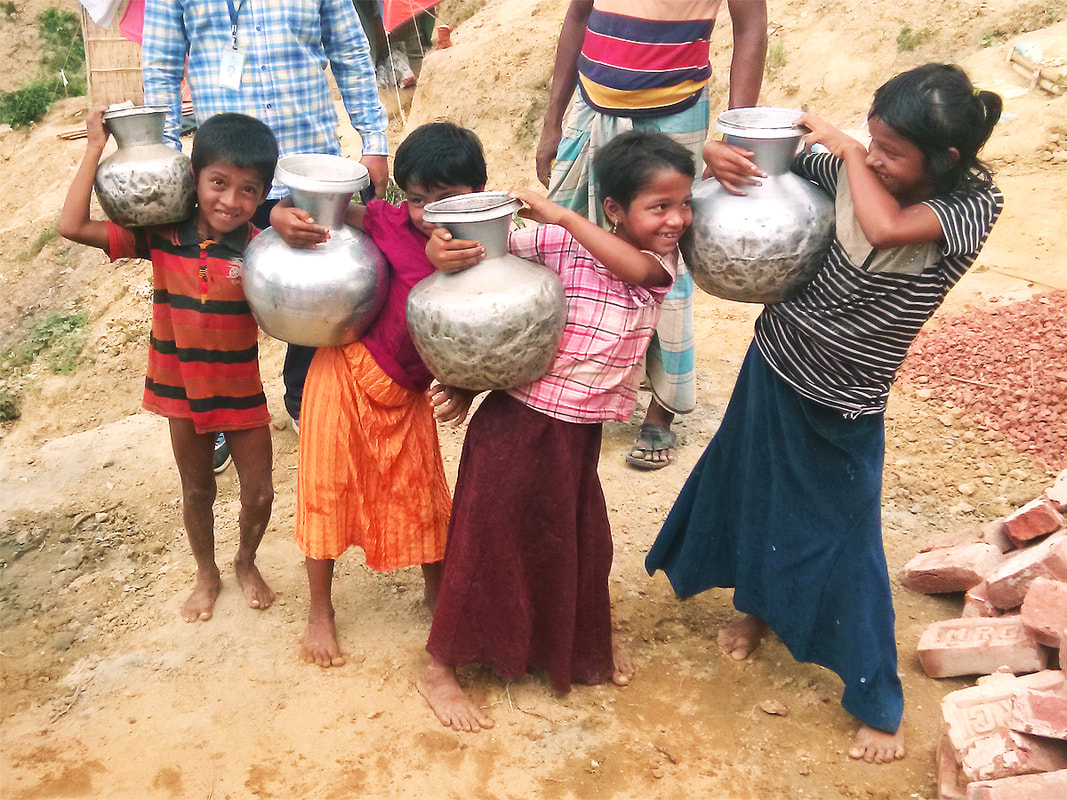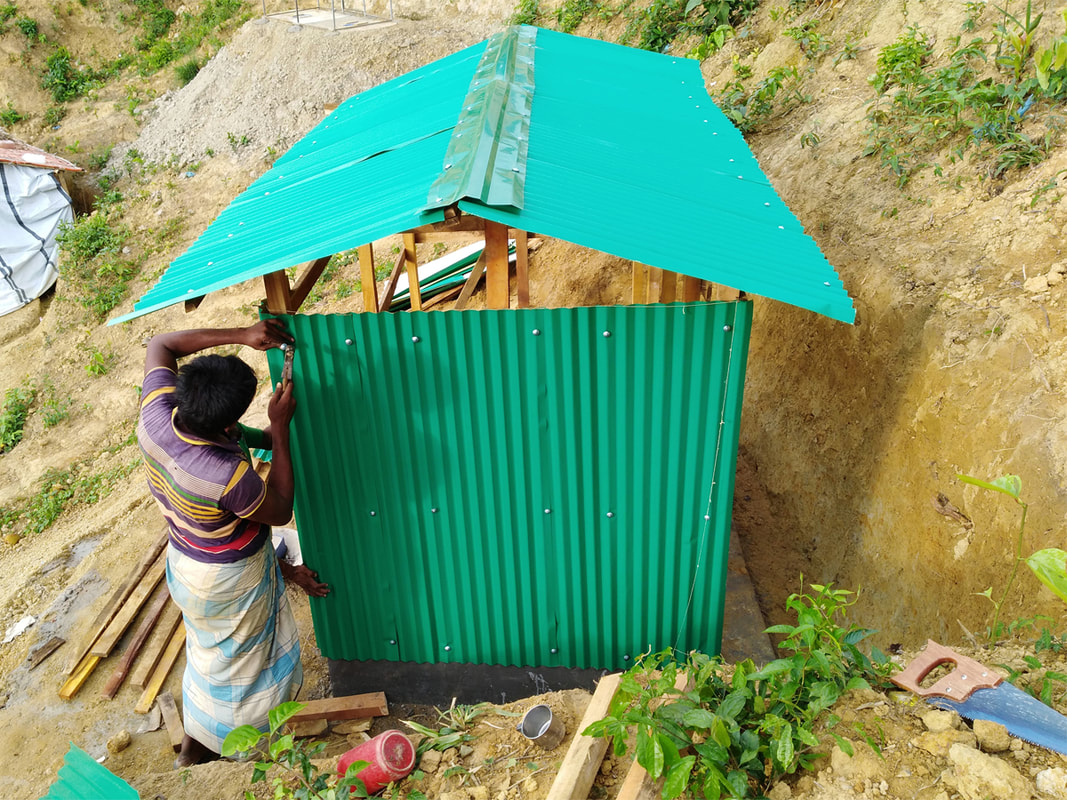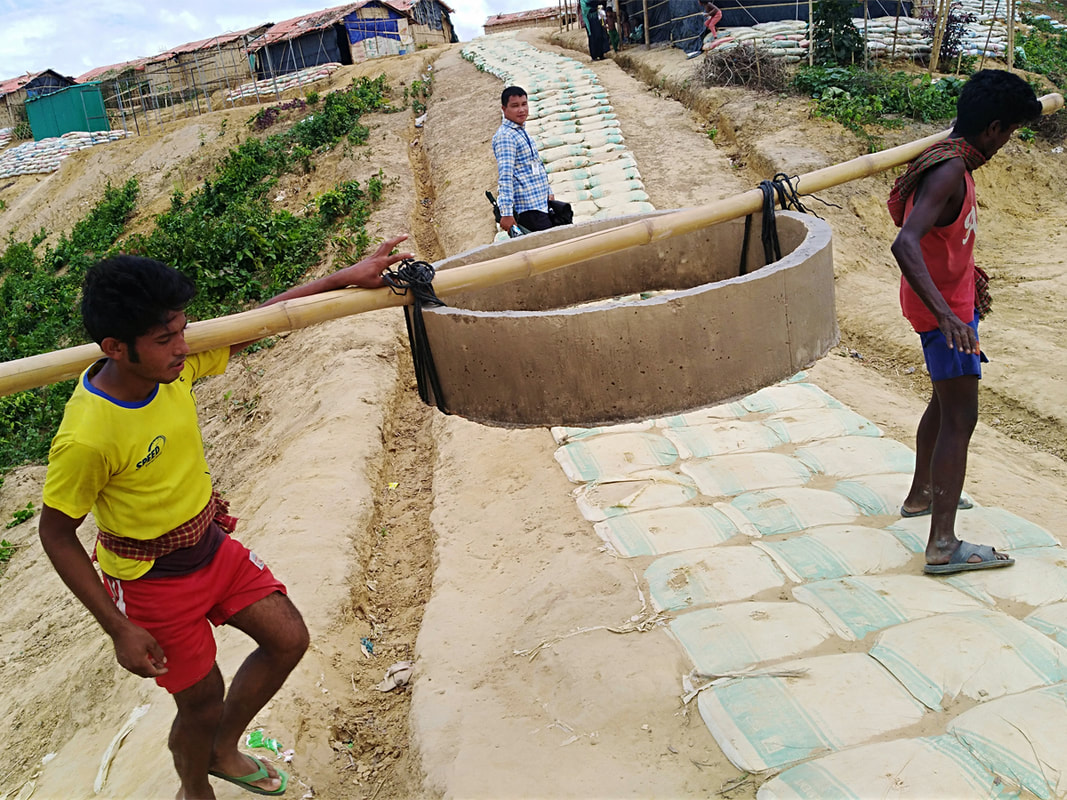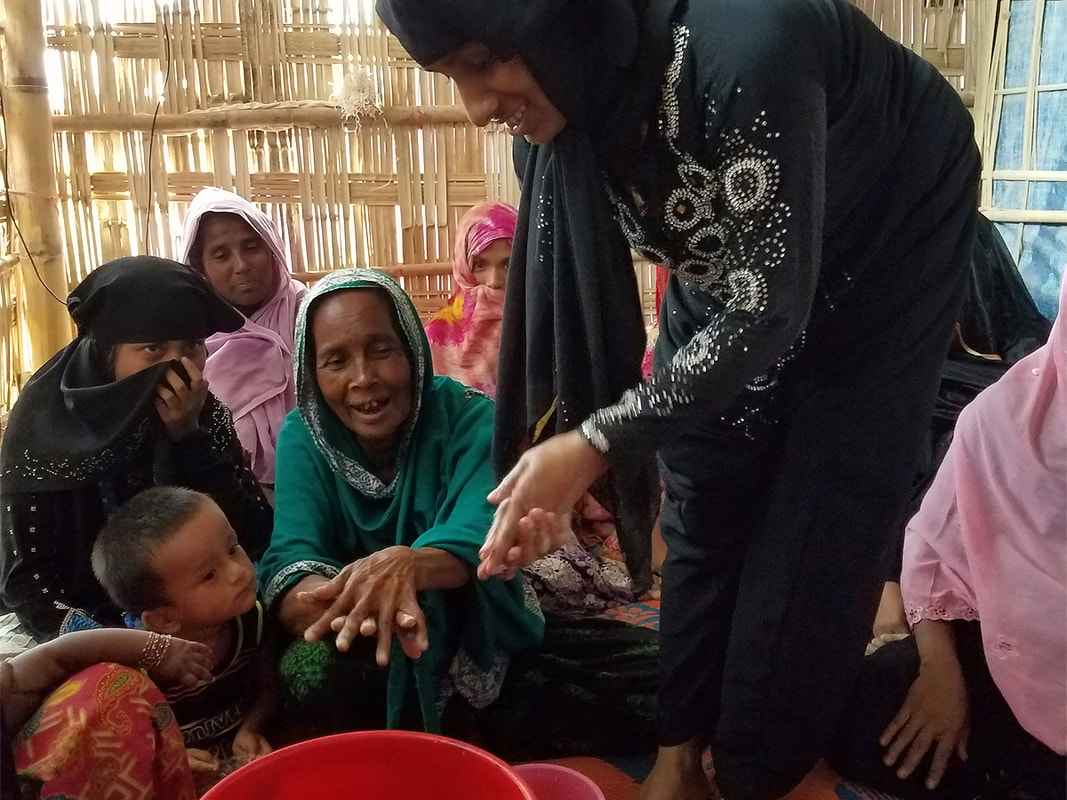|
With more than 900,000 Rohingya refugees living in tightly-packed shelters in Cox’s Bazar, and with many communities at high risk of flooding from the monsoon rains, access to clean water, hygiene and sanitation is crucial to reduce the risk of diarrhea, cholera and other dangerous diseases. As of June 21, 2018, two thirds of Rohingya refugees have access to safe water and functional latrines that meet the standards agreed by the Inter Sector Coordination Group (ISCG) in Cox’s Bazar. Community Partners International (CPI) is working with local partner Society for People’s Action in Change and Equity (SPACE) to help close the gap and ensure that all refugees have access to these basic needs. CPI and SPACE are focusing the initial round of water, sanitation and hygiene (WASH) activities in Camp 17 of the Kutupalong - Balukhali Expansion Sites in Cox’s Bazar. As a first step, CPI and SPACE conducted a feasibility study and needs assessment. The findings were used to prioritize services and locations for WASH facilities. Construction activities were launched in April 2018. Since then, with CPI’s support, SPACE has constructed eight deep tube wells to provide access to safe water to the surrounding households. These deep tube wells meet ISCG minimum standards - 280 meters or more in depth and sited at least 30 meters uphill and/or away from latrines. Each of these tube wells can provide an adequate supply of safe water to up to 500 people per day. SPACE has also completed the construction of three latrines, with two under construction and a further three planned for construction. The latrines meet ISCG standards, being at least 5 feet deep and with a concrete ring of 30 inches or more in diameter, and are sited at least 30 meters away and downstream/downhill from ground water sources. Each latrine unit provides a separate enclosed cubicle for males and females, with a lock on the doors, and a handwashing station equipped with soap. Another priority is the construction of women-friendly hygiene facilities. SPACE has built three enclosed bathing stations for women and girls, including menstrual hygiene management facilities, with two under construction and a further two planned for construction. These stations provide women and girls with privacy and specialized facilities to support their hygiene needs. Building these facilities in the refugee camps in Cox's Bazar is challenging. The roads are little more than dirt tracks, and can quickly turn to deep mud when it rains. Many cannot support heavy vehicles, and the tube well, latrine and bathing station sites are often some way from the roads and located in hilly terrain. This means that materials and equipment often have to be carried manually from the road to the sites.. SPACE is also working with Rohingya communities to support and educate them to maintain good water, sanitation, and hygiene management practices. This includes monthly meetings with community members to discuss issues and concerns, and practical sessions where they learn about good hygiene and sanitation practices such as regular handwashing with soap. Additionally, SPACE organizes private meetings with adolescent girls to provide information on menstrual and personal hygiene management and address their questions or concerns. CPI and SPACE will press on to complete the remaining facilities planned for the current project cycle, ensuring that hundreds more Rohingya refugees in Cox’s Bazar have access to clean water, hygiene and sanitation.
Comments are closed.
|
AuthorCPI Admin Archives
July 2024
Categories
All
|
|
|
COMMUNITY PARTNERS INTERNATIONAL
580 California St Fl 16, Ste 1658, San Francisco, CA 94104-1068, USA [email protected] +1 510 225 9676 We are a registered nonprofit 501(c)(3) Public Charity. TAX ID 94-3375666 |
©
Community Partners International





 RSS Feed
RSS Feed
